第51章 LETTER XIX(3)
I have before mentioned that the men are domestic tyrants,considering them as fathers,brothers,or husbands;but there is a kind of interregnum between the reign of the father and husband which is the only period of freedom and pleasure that the women enjoy.Young people who are attached to each other,with the consent of their friends,exchange rings,and are permitted to enjoy a degree of liberty together which 1have never noticed in any other country.The days of courtship are,therefore,prolonged till it be perfectly convenient to marry:the intimacy often becomes very tender;and if the lover obtain the privilege of a husband,it can only be termed half by stealth,because the family is wilfully blind.It happens very rarely that these honorary engagements are dissolved or disregarded,a stigma being attached to a breach of faith which is thought more disgraceful,if not so criminal,as the violation of the marriage-vow.
Do not forget that,in my general observations,I do not pretend to sketch a national character,but merely to note the present state of morals and manners as I trace the progress of the world's improvement.Because,during my residence in different countries,my principal object has been to take such a dispassionate view of men as will lead me to form a just idea of the nature of man.And,to deal ingenuously with you,I believe I should have been less severe in the remarks I have made on the vanity and depravity of the French,had I travelled towards the north before I visited France.
The interesting picture frequently drawn of the virtues of a rising people has,I fear,been fallacious,excepting the accounts of the enthusiasm which various public struggles have produced.We talk of the depravity of the French,and lay a stress on the old age of the nation;yet where has more virtuous enthusiasm been displayed than during the two last years by the common people of France,and in their armies?I am obliged sometimes to recollect the numberless instances which I have either witnessed,or heard well authenticated,to balance the account of horrors,alas!but too true.I am,therefore,inclined to believe that the gross vices which I have always seem allied with simplicity of manners,are the concomitants of ignorance.
What,for example,has piety,under the heathen or Christian system,been,but a blind faith in things contrary to the principles of reason?And could poor reason make considerable advances when it was reckoned the highest degree of virtue to do violence to its dictates?Lutherans,preaching reformation,have built a reputation for sanctity on the same foundation as the Catholics;yet I do not perceive that a regular attendance on public worship,and their other observances,make them a whit more true in their affections,or honest in their private transactions.It seems,indeed,quite as easy to prevaricate with religious injunctions as human laws,when the exercise of their reason does not lead people to acquire principles for themselves to be the criterion of all those they receive from others.
If travelling,as the completion of a liberal education,were to be adopted on rational grounds,the northern states ought to be visited before the more polished parts of Europe,to serve as the elements even of the knowledge of manners,only to be acquired by tracing the various shades in different countries.But,when visiting distant climes,a momentary social sympathy should not be allowed to influence the conclusions of the understanding,for hospitality too frequently leads travellers,especially those who travel in search of pleasure,to make a false estimate of the virtues of a nation,which,I am now convinced,bear an exact proportion to their scientific improvements.
Adieu.